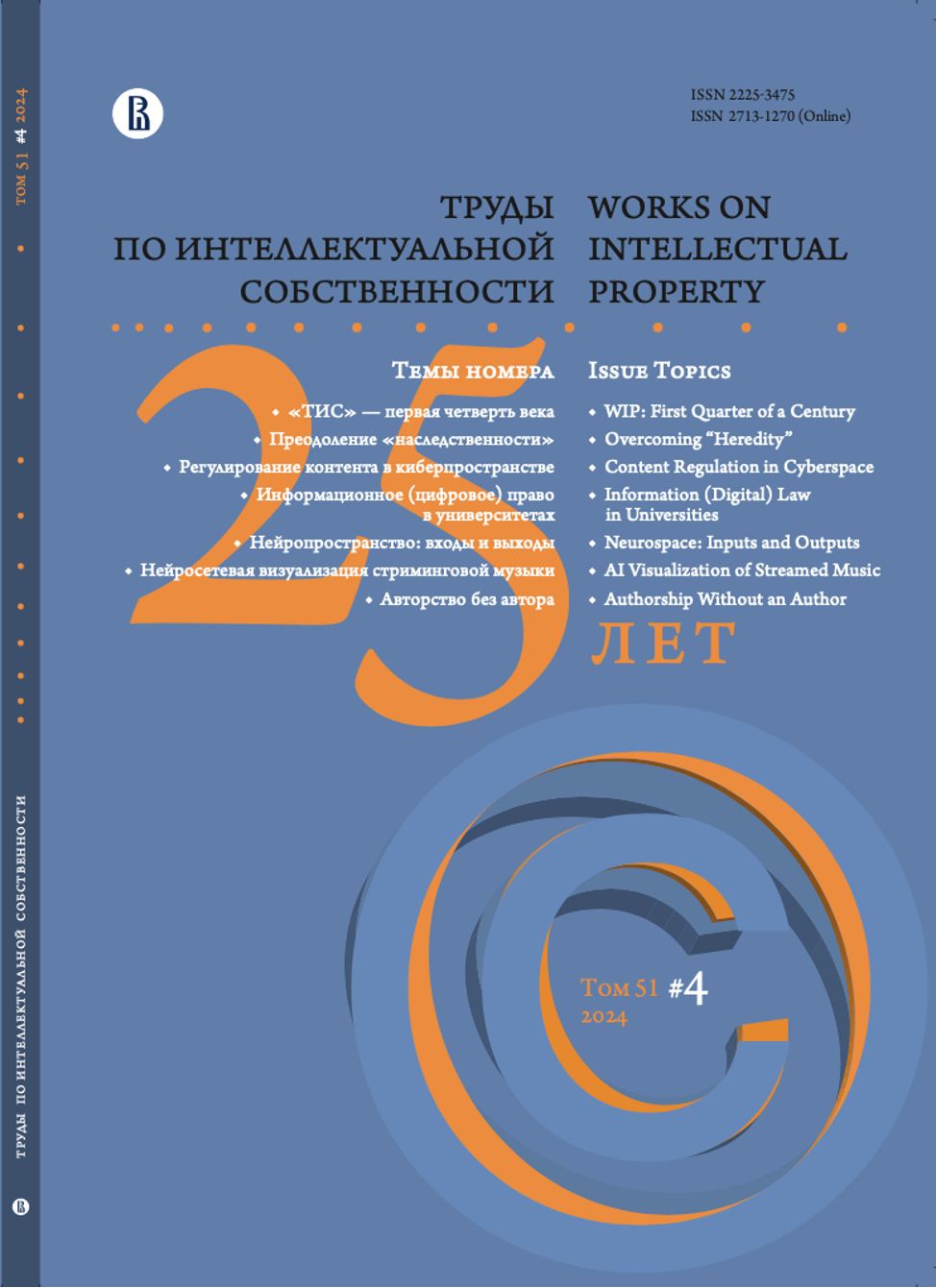AUTHORSHIP WITHOUT AN AUTHOR: LEGAL ASPECTS OF WORKS CREATED BY AI
Abstract
The article explores the challenges posed by the emergence of generative artificial intelligence to copyright law, particularly regarding traditional concepts of authorship and creative works. The author examines the complexities of how the legal system might respond to works created by units of artificial intelligence, suggesting that significant regulatory changes are necessary. Special attention is given to the need for reassessing the legal paradigm in light of the increasing role of artificial intelligence in creating literary, musical, and visual works. The article highlights key issues such as the exponential growth of AI-generated content, which could overwhelm traditional creative markets and reduce human creativity. This could have far-reaching effects on intellectual property protection and the future of cultural production. In response, the author proposes several regulatory approaches, including shortening the protection term for works created by artificial intelligence and introducing limited protection for content created without significant human involvement. The author argues that these measures could help balance innovation with the protection of human creators' interests, ensuring that copyright law keeps pace with technological progress. This approach would help the legal system better preserve the value of human creativity in a world increasingly dominated by automation. It will require a comprehensive review and possible overhaul of existing copyright laws to account for the unique characteristics of works created by units of artificial intelligence.


